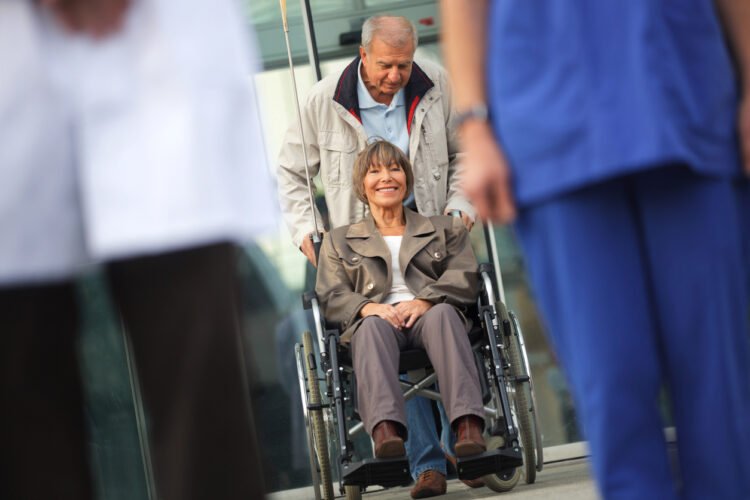Emergency physicians are trained to handle all kinds of medical crises, from heart attacks and strokes to falls, cuts, and major accidents. They also spend a lot of time treating complications that could have been prevented.
This raises an important question: What common patterns do they see in emergency rooms, and what can people do to avoid sudden trips to the hospital?
To get some expert insight, I spoke with CNN wellness expert Dr. Leana Wen, a board-certified emergency physician who has seen it all in the ER. She is also an adjunct associate professor at George Washington University and a former health commissioner for Baltimore.
The Importance of Preventive Care
CNN: What are some of the most effective ways to stay healthy and avoid the ER?
Dr. Wen: One of the best things you can do is visit your doctor regularly for preventive check-ups. Many people only see their physician when they’re sick, assuming they don’t need medical attention if they feel fine. That’s a mistake.
When you’re unwell, your doctor’s focus will be on diagnosing and treating the immediate problem—whether it’s a high fever, a persistent cough, or another acute issue. There’s often little time to discuss broader health concerns, such as routine screenings, vaccinations, or long-term risk factors like high blood pressure or diabetes.
Even if you had a clean bill of health last year and feel perfectly fine, scheduling an annual check-up is crucial. These visits allow your doctor to monitor your overall well-being, check your blood pressure, and screen for conditions such as diabetes, high cholesterol, anemia, and thyroid disorders. They’re also an opportunity to discuss lifestyle factors like nutrition, sleep, and mental health.
Managing Chronic Conditions
CNN: What about people who already have chronic health conditions?
Dr. Wen: Managing conditions like high blood pressure, diabetes, and high cholesterol is essential. Unfortunately, it’s easy to become complacent—people might forget to take their medications or neglect lifestyle changes that could improve their health.
Take hypertension, for example. It’s often called the “silent killer” because it has no noticeable symptoms, even when blood pressure is dangerously high. Left untreated, it can lead to serious complications such as heart attacks and strokes, which can cause permanent disability or even death.
The key is to stay proactive. Know your health status, follow your doctor’s recommendations, and stick to your treatment plan to prevent emergencies before they happen.
Finding a Primary Care Provider
CNN: What if someone doesn’t have a regular doctor?
Dr. Wen: If you don’t have a primary care provider, it’s important to find one. Many people have health insurance but have never taken the step to choose a doctor. Don’t wait until you’re sick—set up an appointment now.
For those without insurance, there are community health centers that offer low-cost or free medical care. Local and state health departments can also help connect uninsured patients with medical providers.
Knowing Where to Seek Care
CNN: Are there other benefits to having a regular doctor?
Dr. Wen: Absolutely. One of the biggest advantages is having a plan for where to go when you need care.
Many doctors offer same-day appointments, whether in person or through telemedicine. If your provider doesn’t, find out where you should go for different types of issues.
For example, does your insurance cover urgent care visits at a lower cost than an ER visit? If so, it may be more practical to visit urgent care for minor problems like ear infections or small cuts. If your doctor has admitting privileges at a particular hospital, you may want to go there in case of a serious illness.
Making these decisions in advance will save you time, stress, and money when you’re not feeling well. Make sure your family members are also aware of your care plan.
Preventing Accidental Medication Overdoses
CNN: What are some other simple ways to stay safe and avoid emergencies?
Dr. Wen: Lock up your medications, including over-the-counter drugs. This is especially important if you have young children in your home or visiting frequently.
Every year in the U.S., around 35,000 children under five end up in the ER due to accidental medication overdoses. More than 90% of these cases happen because kids get into medicines without adult supervision.
Locking up medications also prevents theft, particularly of narcotics and other prescription drugs that could be misused.
People often talk about locking up firearms and alcohol to protect others. Medications should be treated with the same level of caution.
When to Go to the ER
CNN: When is it absolutely necessary to go to the emergency room?
Dr. Wen: If you have symptoms of a heart attack or stroke, don’t wait—go straight to the ER.
For a heart attack, watch for chest pain, shortness of breath, or sudden pain in the arm, back, neck, or jaw.
For a stroke, remember the acronym BE FAST:
- B (Balance) – Sudden loss of balance or difficulty walking
- E (Eyes) – Blurry or double vision
- F (Face) – Facial droop on one side
- A (Arm) – Weakness or numbness in one arm
- S (Speech) – Slurred speech or difficulty speaking
- T (Time) – Act quickly and call 911
Final Thoughts
The goal isn’t to avoid the ER at all costs—sometimes, seeking emergency care is the best course of action. But by prioritizing preventive health care, managing chronic conditions, and knowing where to seek help, you can significantly reduce the chances of facing a medical emergency. Taking these steps will help keep you healthier and out of the ER whenever possible.

 English
English



























































